Protesting at factory gates is no longer in the best interests of farmers. The ongoing lockdown of the sector – plus the constant undermining of our quality assurance brand in full view of consumers and international customers – is doing irreparable damage to the beef and sheepmeat sector that farmers have worked so hard to build up.
In recent days, all attention has focused on those standing at the gates of the meat factories. But it is now time that the voice of farmers with animals to slaughter takes centre stage. These farmers are coming under severe financial pressure with many having sold no cattle or sheep since protests began – often in solidarity with those on the gates. There is no doubt that if this continues it is going to have a severe impact on the autumn weanling trade.
It is no longer good enough for these farmers to simply remain the silent majority – it is time for them to make their voices heard and for them to be listened to.
The losses being incurred on these farms are mounting as cattle go out of spec and lambs over-fat and overweight. Of course, it can be argued that at a current base price of €3.50/kg beef farmers are going out of business. But this is a decision that farmers should be allowed to make for themselves and not have forced upon them.
It is farmers who will end up paying the price for lost markets or for any reduction in demand
It is easy to dismiss warnings of damage to market contracts as propaganda by meat factories. However, no one should be naive enough to think that customers are sitting on their hands waiting for Irish beef to come back on to the market. Premium markets are not going to allow their shelves run bare or supply chains grind to a halt. They have been and are actively working to develop alternative sources of supply – sources that they are unlikely to shut down when Irish beef comes back on stream.
It is farmers who will end up paying the price for lost markets or for any reduction in demand. Will those who have assumed leadership positions in recent weeks be as quick to stand up in front of farmers when the financial impact of continuing the protests becomes clear?
Playing into processors’ hands
There is also the risk that by continuing to lock down the sector, those on the gates are playing directly into the hands of beef processors. Groups with deeper pockets and wider financial interests are in a much stronger position to withstand the financial pressure of shutting down operations.
These bigger groups will be well aware that the pressure on some of the smaller independent operators may in fact present acquisition opportunities.
It is not likely that the agenda of those on the gates is to drive further consolidation into the sector but it could be a very real byproduct if the sector remains locked down.
Meanwhile, we have seen angry reactions to meat processors moving fat cattle and beef into Northern Ireland for processing. But the rush to condemn ignores the fact that a precedent has now been set by processors, where a labelling solution that was not available before has been found for Irish cattle slaughtered outside of the jurisdiction. This creates an opportunity for Irish cattle to travel for finishing and slaughter to either Northern Ireland or Britain without losing value in the process due to being excluded from premium markets.
To date, the conviction of protestors has largely seen them win favour within the farming community, and rightly so. Their actions have highlighted the extent to which the beef sector has been allowed to wither on the vine for many years without any plan or commitment from Government. The protests have brought the issues centre stage and should be acknowledged for having done so.
The deal agreed last weekend is not perfect but it was never going to be a silver bullet. However, it is a significant step in the right direction. The short-term gain is extra steers and heifers coming into the bonus structure. However, where farmers could reap the real dividends is in the structural change that a properly arranged task force could deliver in relation to transparency.
It is understandable why many are sceptical of the deal given the complete lack of trust that exists between factories and farmers. However, it has been endorsed by all the main farm organisations representing the vast majority of farmers.
It is down to these farm organisations along with Minister for Agriculture Michael Creed to make sure that the commitments within the deal deliver for farmers.
It is now clear that the desperation of farmers on protest is now matched by the desperation of farmers to get cattle and sheep slaughtered.
Budget 2020: Donohoe commits to Brexit budget with supports for affected sectors

Minister for Finance Paschal Donohoe has committed that Budget 2020 will be framed around the prospects of a no-deal Brexit. The minister has acknowledged the need for the Government to introduce measures for sectors that would be severely affected if a no-deal Brexit becomes a reality.
It has been widely acknowledged that one of the sectors most exposed to a no-deal Brexit is agriculture, with 40% of exports – worth €4.5bn per annum – destined for the UK market.
An analysis prepared for the Irish Government by Copenhagen Economics supported this view and found that in a no-deal scenario dairy and beef exports to the UK could fall by 76% and 53% respectively over the next decade.
The financial hit on the beef sector has been estimated at €1bn per annum and €100m in the case of dairy.
Farmers have repeatedly been assured of a strong commitment within Government and Brussels to protect their incomes in the event of no-deal.
The October budget will be watched closely in order to assess the extent of this commitment. A strong financial package for the sector will be expected.
Low-cost loans: farmers waiting on overdue funds
It’s hard to believe that less than half of the money in the so-called low-cost loan scheme is only now available to farmers.
We keep hearing that this scheme is a real support for farmers in the face of Brexit uncertainty.
It now looks likely Brexit will come and go and farmers will still only have access to €20m of the €50m that was promised in 2017, but announced in Budget 2018.
In total, just €30m of the overall €300m has been drawn down to date.
On our stand at the National Ploughing Championships this week, we had numerous mart managers and farm input suppliers talking about the credit deficit in the industry. Surely some of the unused €270m can be made available to farmers and would be gobbled up by the wider farming community?
Ploughing: huge crowds bask in glorious sunshine
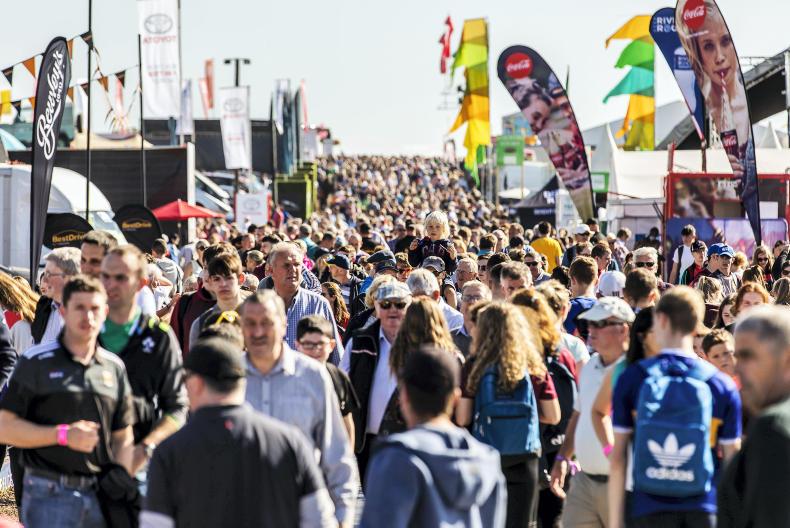
Crowds on day two of the Ploughing. \ Donal O'Leary
Farmers have been basking in glorious sunshine at the National Ploughing Championships this week.
The event has once again proved hugely successful with large crowds in attendance. The three days not only provide a great opportunity to showcase the importance of the industry to the national economy but also provide a great social opportunity for farmers.
All concerned deserve great credit for continuing to deliver such an excellent event.
Dairy: no room for further cuts to milk prices
Dairy farmers will be grateful to see the upturn in butter markets. With the recent price cuts, it looks like co-op boards are taking back some of the early year subsidisation to reinforce co-op balance sheets and profits. However, farmers will be expecting milk price lifts as commodity markets continue to improve given on-farm debt levels. The average cost of milk production is close to 30c/l. With many base prices at 27c/l ex VAT, there is little room for further price cuts.
Protesting at factory gates is no longer in the best interests of farmers. The ongoing lockdown of the sector – plus the constant undermining of our quality assurance brand in full view of consumers and international customers – is doing irreparable damage to the beef and sheepmeat sector that farmers have worked so hard to build up.
In recent days, all attention has focused on those standing at the gates of the meat factories. But it is now time that the voice of farmers with animals to slaughter takes centre stage. These farmers are coming under severe financial pressure with many having sold no cattle or sheep since protests began – often in solidarity with those on the gates. There is no doubt that if this continues it is going to have a severe impact on the autumn weanling trade.
It is no longer good enough for these farmers to simply remain the silent majority – it is time for them to make their voices heard and for them to be listened to.
The losses being incurred on these farms are mounting as cattle go out of spec and lambs over-fat and overweight. Of course, it can be argued that at a current base price of €3.50/kg beef farmers are going out of business. But this is a decision that farmers should be allowed to make for themselves and not have forced upon them.
It is farmers who will end up paying the price for lost markets or for any reduction in demand
It is easy to dismiss warnings of damage to market contracts as propaganda by meat factories. However, no one should be naive enough to think that customers are sitting on their hands waiting for Irish beef to come back on to the market. Premium markets are not going to allow their shelves run bare or supply chains grind to a halt. They have been and are actively working to develop alternative sources of supply – sources that they are unlikely to shut down when Irish beef comes back on stream.
It is farmers who will end up paying the price for lost markets or for any reduction in demand. Will those who have assumed leadership positions in recent weeks be as quick to stand up in front of farmers when the financial impact of continuing the protests becomes clear?
Playing into processors’ hands
There is also the risk that by continuing to lock down the sector, those on the gates are playing directly into the hands of beef processors. Groups with deeper pockets and wider financial interests are in a much stronger position to withstand the financial pressure of shutting down operations.
These bigger groups will be well aware that the pressure on some of the smaller independent operators may in fact present acquisition opportunities.
It is not likely that the agenda of those on the gates is to drive further consolidation into the sector but it could be a very real byproduct if the sector remains locked down.
Meanwhile, we have seen angry reactions to meat processors moving fat cattle and beef into Northern Ireland for processing. But the rush to condemn ignores the fact that a precedent has now been set by processors, where a labelling solution that was not available before has been found for Irish cattle slaughtered outside of the jurisdiction. This creates an opportunity for Irish cattle to travel for finishing and slaughter to either Northern Ireland or Britain without losing value in the process due to being excluded from premium markets.
To date, the conviction of protestors has largely seen them win favour within the farming community, and rightly so. Their actions have highlighted the extent to which the beef sector has been allowed to wither on the vine for many years without any plan or commitment from Government. The protests have brought the issues centre stage and should be acknowledged for having done so.
The deal agreed last weekend is not perfect but it was never going to be a silver bullet. However, it is a significant step in the right direction. The short-term gain is extra steers and heifers coming into the bonus structure. However, where farmers could reap the real dividends is in the structural change that a properly arranged task force could deliver in relation to transparency.
It is understandable why many are sceptical of the deal given the complete lack of trust that exists between factories and farmers. However, it has been endorsed by all the main farm organisations representing the vast majority of farmers.
It is down to these farm organisations along with Minister for Agriculture Michael Creed to make sure that the commitments within the deal deliver for farmers.
It is now clear that the desperation of farmers on protest is now matched by the desperation of farmers to get cattle and sheep slaughtered.
Budget 2020: Donohoe commits to Brexit budget with supports for affected sectors

Minister for Finance Paschal Donohoe has committed that Budget 2020 will be framed around the prospects of a no-deal Brexit. The minister has acknowledged the need for the Government to introduce measures for sectors that would be severely affected if a no-deal Brexit becomes a reality.
It has been widely acknowledged that one of the sectors most exposed to a no-deal Brexit is agriculture, with 40% of exports – worth €4.5bn per annum – destined for the UK market.
An analysis prepared for the Irish Government by Copenhagen Economics supported this view and found that in a no-deal scenario dairy and beef exports to the UK could fall by 76% and 53% respectively over the next decade.
The financial hit on the beef sector has been estimated at €1bn per annum and €100m in the case of dairy.
Farmers have repeatedly been assured of a strong commitment within Government and Brussels to protect their incomes in the event of no-deal.
The October budget will be watched closely in order to assess the extent of this commitment. A strong financial package for the sector will be expected.
Low-cost loans: farmers waiting on overdue funds
It’s hard to believe that less than half of the money in the so-called low-cost loan scheme is only now available to farmers.
We keep hearing that this scheme is a real support for farmers in the face of Brexit uncertainty.
It now looks likely Brexit will come and go and farmers will still only have access to €20m of the €50m that was promised in 2017, but announced in Budget 2018.
In total, just €30m of the overall €300m has been drawn down to date.
On our stand at the National Ploughing Championships this week, we had numerous mart managers and farm input suppliers talking about the credit deficit in the industry. Surely some of the unused €270m can be made available to farmers and would be gobbled up by the wider farming community?
Ploughing: huge crowds bask in glorious sunshine

Crowds on day two of the Ploughing. \ Donal O'Leary
Farmers have been basking in glorious sunshine at the National Ploughing Championships this week.
The event has once again proved hugely successful with large crowds in attendance. The three days not only provide a great opportunity to showcase the importance of the industry to the national economy but also provide a great social opportunity for farmers.
All concerned deserve great credit for continuing to deliver such an excellent event.
Dairy: no room for further cuts to milk prices
Dairy farmers will be grateful to see the upturn in butter markets. With the recent price cuts, it looks like co-op boards are taking back some of the early year subsidisation to reinforce co-op balance sheets and profits. However, farmers will be expecting milk price lifts as commodity markets continue to improve given on-farm debt levels. The average cost of milk production is close to 30c/l. With many base prices at 27c/l ex VAT, there is little room for further price cuts.






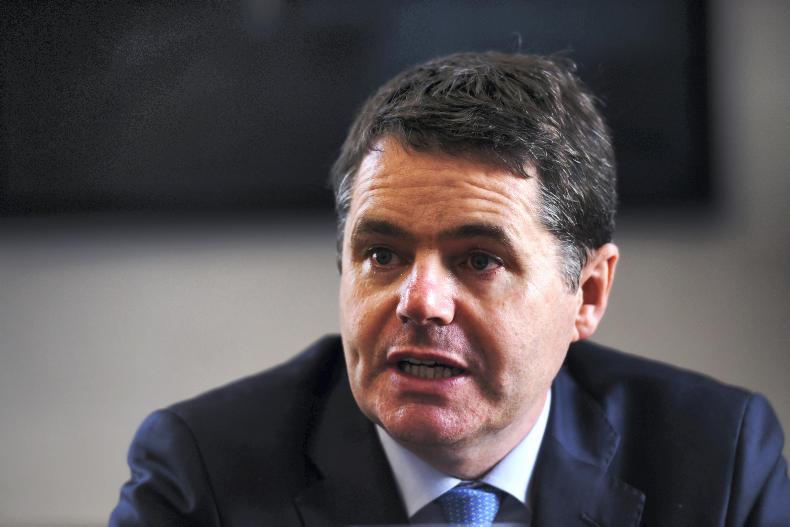


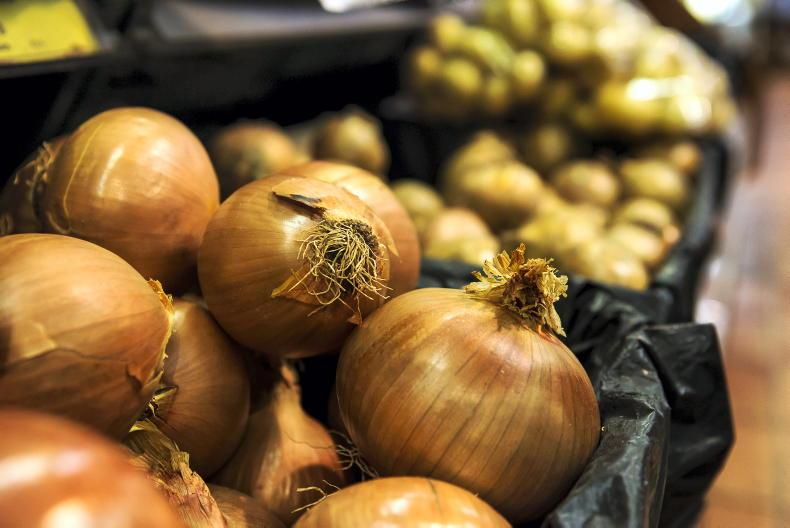


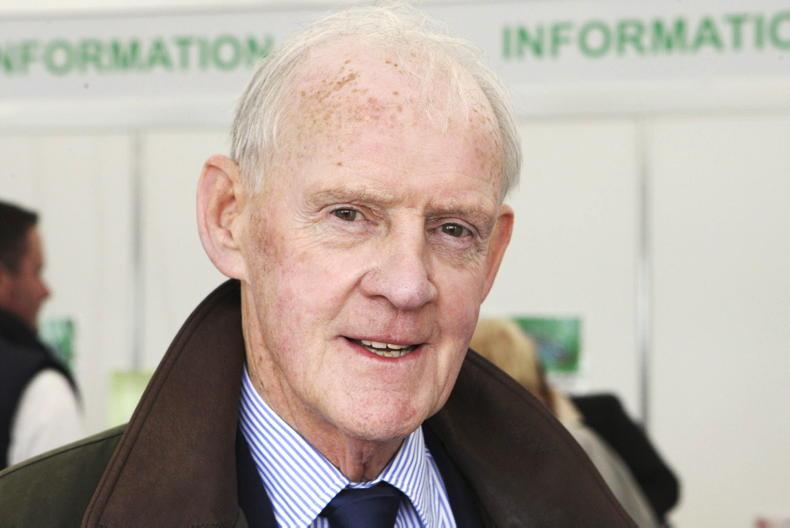
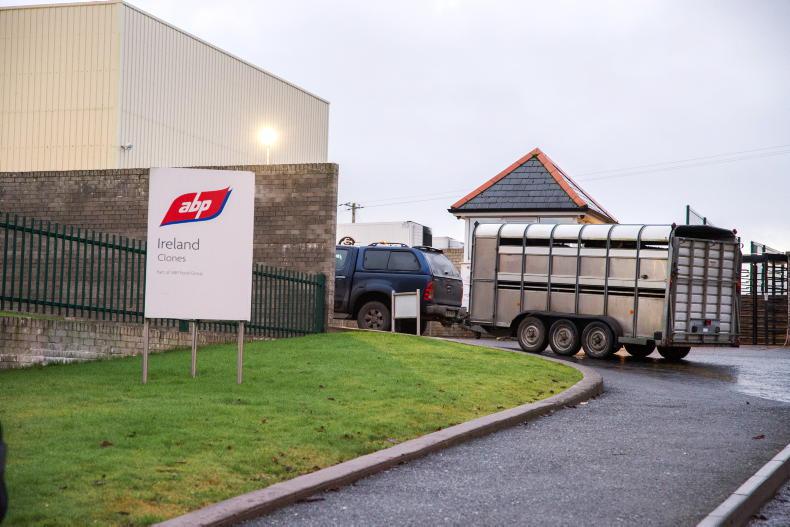
SHARING OPTIONS